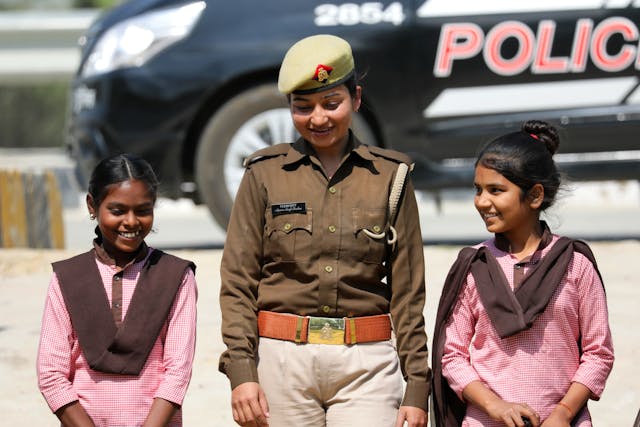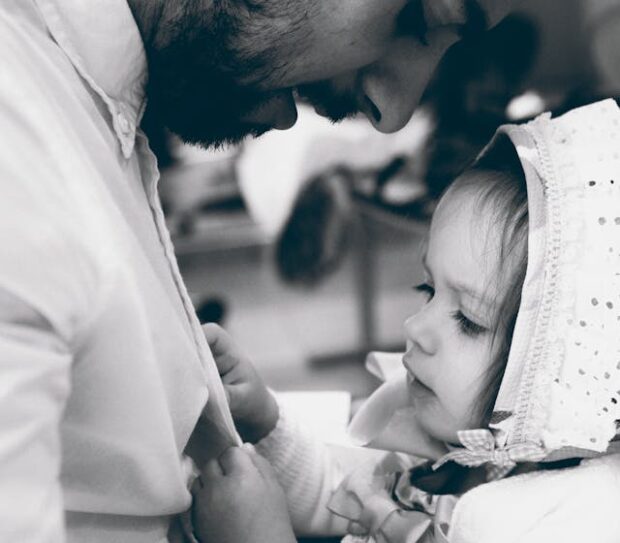
Parenting in today’s fast-paced world brings challenges that require more than traditional discipline techniques. In India, where family dynamics are often steeped in culture and community values, it’s essential to find a balance between guiding children effectively and nurturing their emotional growth. The book No-Drama Discipline: The Whole-Brain Way to Calm the Chaos and Nurture Your Child’s Developing Mind by Dr. Daniel J. Siegel and Dr. Tina Payne Bryson offers a transformative approach that aligns well with the needs of Indian parents who wish to create a balanced, emotionally resilient environment for their children.
Understanding No-Drama Discipline
No-Drama Discipline encourages parents to focus not just on correcting behavior but on understanding the underlying reasons behind it. This approach emphasizes guiding children calmly and constructively, rather than relying on punitive measures. For Indian parents, who often face societal pressures to maintain control and discipline, this method provides a valuable alternative that is compassionate and effective.
Key Principles:
- Connecting with Empathy: A major focus of No-Drama Discipline is connecting emotionally with the child, which helps parents address the root of misbehavior. In an Indian context, where respect and family bonds are vital, empathizing with the child can reinforce trust and cooperation.
- Whole-Brain Integration: No-Drama Discipline is based on the idea of integrating both logical and emotional brain responses. For children, this means understanding their own feelings and using that understanding to behave appropriately.
- Calm in the Chaos: By fostering a calm atmosphere, Indian parents can help children learn emotional regulation. This calmness aligns with Indian values of patience and wisdom, enhancing children’s long-term growth.
Adapting No-Drama Discipline to Indian Family Dynamics
In Indian households, discipline often includes extended family members such as grandparents, who may have differing views on child-rearing. Integrating No-Drama Discipline requires communication across these family members to ensure consistency in approach. By adopting the practices below, families can work together to support a child’s development in a way that feels natural and cohesive:
- Communicating Compassionately with Extended Family: Discussing the principles of No-Drama Discipline with other caregivers helps ensure that everyone understands the approach and contributes to the child’s development in harmony.
- Setting Boundaries with Patience: Discipline often takes the form of setting clear, compassionate boundaries. Indian families can use this technique by establishing family rules that encourage children to understand their responsibilities and emotional responses.
- Encouraging Open Emotional Dialogue: Indian families may sometimes emphasize achievement over emotional awareness. Encouraging children to talk about their feelings openly fosters emotional intelligence and helps them manage stress and setbacks, promoting resilience.
Practical Steps for Implementing No-Drama Discipline in India
Here are some practical techniques for implementing No-Drama Discipline in an Indian household:
- Acknowledge Feelings Before Correcting Behavior: Indian parents can encourage children to express their feelings when they act out, such as saying, “I understand you’re upset because…” This helps children feel heard and respected.
- Reflect and Redirect: Rather than scolding or punishing, encourage children to think about their actions by asking guiding questions like, “What could we do differently next time?” This helps children make better choices and feel responsible for their actions.
- Create Time-In Instead of Time-Out: Indian culture values togetherness, making the concept of “time-in” a natural fit. A “time-in” allows parents to sit with their children during moments of frustration or anger, helping them calm down rather than isolating them. This reinforces family unity and shows the child they are supported.
The Role of Schools and Communities in No-Drama Discipline
With the pressures of academic success and extracurricular demands, children in India often face immense stress. Schools and communities can support parents by implementing No-Drama Discipline techniques in their own environments. Teachers can foster an empathetic, patient approach to discipline by:
- Teaching Emotional Awareness: Schools can incorporate emotional intelligence exercises in classrooms, encouraging children to identify and express their emotions.

- Using Positive Reinforcement: Recognizing children for good behavior and positive choices can be more effective than punishment. This aligns with the principle of encouragement over correction in No-Drama Discipline.
Indian Success Stories with No-Drama Discipline
Many Indian parents have found success in incorporating No-Drama Discipline into their family dynamics. Parents report that their children respond more positively to calm discussions than to strict, traditional forms of punishment. They also find that their children are better able to manage their emotions, which leads to stronger family bonds and less household tension.
For example, one family shared that by replacing punishments with guided conversations, their children became more cooperative and self-aware. The emphasis on empathy helped reduce power struggles, creating a home environment that encouraged learning and support.
Resources for Indian Parents Exploring No-Drama Discipline
For parents who wish to dive deeper into No-Drama Discipline and related approaches, there are several resources available. Many parenting workshops and seminars in India focus on child development through positive parenting techniques. Books such as Brainstorm: The Power and Purpose of the Teenage Brain by Dr. Siegel also offer valuable insights for parents looking to expand their understanding.
- Dr. Daniel Siegel’s Website – Includes information on books and workshops on No-Drama Discipline.
- ParentCircle India – An Indian parenting resource for positive parenting techniques.
- Raising Happiness India – Provides content on mindful parenting for Indian families.
Final Thoughts
Adopting the No-Drama Discipline approach can be transformative for Indian families seeking a more compassionate, mindful way to nurture their children. By focusing on emotional connection, whole-brain integration, and calm guidance, parents can create a supportive environment that aligns with Indian cultural values while preparing their children for life’s challenges. As Indian families increasingly explore these modern parenting techniques, the future looks bright for a generation of emotionally balanced, resilient children.
#TrendingNow #InspirationDaily #ExploreMore #LifestyleTips #InTheNews #DigitalAge #Insights #Innovation #BehindTheScenes #WorldView #Digital #forensic
Read more on our more trending special page















Be the first to leave a comment